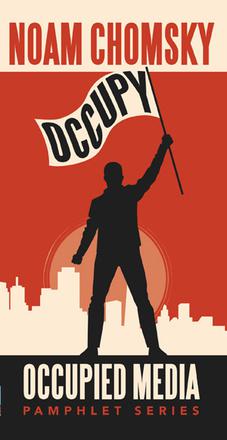Lawrence H. White: The Clash of Economic Ideas: The Great Policy Debates and Experiments of the Last Hundred Years (2012)
Filed under book | Tags: · business, economics, economy, history, liberalism, market, money, production

The Clash of Economic Ideas interweaves the economic history of the last hundred years with the history of economic doctrines to understand how contrasting economic ideas have originated and developed over time to take their present forms. It traces the connections running from historical events to debates among economists, and from the ideas of academic writers to major experiments in economic policy. The treatment offers fresh perspectives on laissez faire, socialism and fascism; the Roaring Twenties, business cycle theories and the Great Depression; Institutionalism and the New Deal; the Keynesian Revolution; and war, nationalization and central planning. After 1945, the work explores the postwar revival of invisible-hand ideas; economic development and growth, with special attention to contrasting policies and thought in Germany and India; the gold standard, the interwar gold-exchange standard, the postwar Bretton Woods system and the Great Inflation; public goods and public choice; free trade versus protectionism; and finally fiscal policy and public debt.
Publisher Cambridge University Press, 2012
ISBN 1107012422, 9781107012424
440 pages
discussion with the author (with Russ Roberts, EconTalk)
review (Alberto Mingardi, The Washington Times)
Georgios Papadopoulos: Notes towards a Critique of Money (2011)
Filed under book | Tags: · critique, desire, economy, market, money, neoliberalism, value

The analysis in Notes towards a Critique of Money highlights the functions of money both in the organization of the capitalist symbolic order and in the constitution of subjectivity in the market.
Combining Lacanian psychoanalysis and Baudrillardian structuralism, the book creates a universe where price and sign are entangled, giving rise to the dominant organizing form of capitalism. The fantasmatic management of desire enforces this structural principle on the subjective level and encourages the libidinal investment in the dominant representations of social reality as they are produced by the combined principles of signification and economic valuation. Here, money signifies the particular content that hegemonizes the universal ideological construction of capitalism providing a particular and accessible meaning to economic value, which colours the very universality of the system of prices and accounts for its efficiency.
Being conscious of the limitations of the theoretical analysis, the book employs along with rational arguments a series of artworks that are used both to illustrate the argument and to challenge the unconscious links between the market and the subject, as it is mediated by money and ideology. Notes towards a Critique of Money does not only aspire to raise a theoretical challenge against capital and to open up possibilities of emancipation, but to point towards a new aesthetic of political analysis.
Contributing artists: Société Realiste, Yuko Kamei, Nikos Arvanitis, Zachary Formwalt, Jean-Baptiste Maitre, Valentin Ruhry, Kay Walkowiak, Shogo Matsushiro, Axel Loytved, Post Tenebras Luxe / Donatella Bernardi, Hervé Graumann, Hadrien Dussoix, Wolfgang Fütterer, No Wonder.
Afterword by Yannis Stavrakakis
Published by Jan van Eyck Academie, Maastricht, NL
Creative Commons BY-NC-ND 3.0 Unported License
ISBN 9789072076649
142 pages
PDF
View online (Scribd.com)
Noam Chomsky: Occupy (2012)
Filed under pamphlet | Tags: · activism, money, occupy movement, politics, protest

“Since its sudden appearance in September 2011, the Occupy movement has spread to thousands of towns and cities across the world. For some it’s the economy. For others, it’s something deeper. Through relentless organizing and ongoing civil disobedience, the movement now occupies the global conscience as its influence spreads from street assemblies and protests to op-ed pages and the corridors of power. From the movement’s onset, Noam Chomsky was there, offering his voice, his support, and his detailed analysis of what’s been going down and what might be done.
In Occupy, Chomsky presents his latest thinking on the core issues, questions and demands that are driving ordinary people to protest. How did we get to this point? How do the wealthiest 1% influence society? How can we separate money from politics? What would a genuine democracy look like? How can we create new institutions to increase freedom and equality for all? Following the old course, says Chomsky, isn’t going to work. If we continue to follow the model of growth set for us by the 1%, we’ll be “like lemmings walking off a cliff.” The only alternative is to get involved and fight for a better future. If not now, when? If not us, who?
Occupy also features graphics by R. Black, photography by Alex Fradkin and Stanley Rogouski, and a “What To Do If You Get Arrested” guide for protestors written by The National Lawyers Guild. Read this book if you want to do something to fight back against corporate influence and government control.”
Publisher Zuccotti Park Press, Brooklyn, New York, 2012
Occupied Media Pamphlet series
ISBN 9781884519017
128 pages
PDF (added on 2017-12-2)
MOBI (updated on 2017-12-2)

